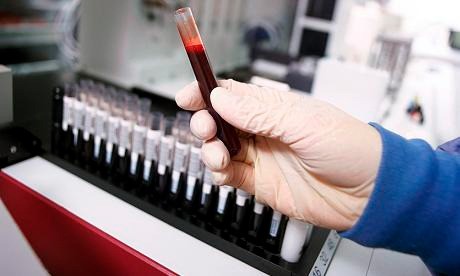Chemical Tests for DUI: Are They Accurate Enough to Convict Me for a DUI/DWI?
DUI arrests can be very controversial from the point of stop up to test, arrest and possible charge levels. There can be various twist and stories to it depending on your cooperation and composure with police officers, even the expertise of your lawyer. This could be very difficult anyway because you and the police officer are having conflicting objectives. While the police officer is looking to have you booked for DUI, you are looking to escape the arrest so as to protect your clean crime records and avoid the huge consequences that may follow a DUI charge.

A police that suspect a driver for driving under influence would most definitely administer various tests designed to assess his level of impairment and the alcohol or drug concentration in his blood. The police officer as much as the driver know too well that you could avoid his voluntary tests which include the field sobriety tests. He might then ask the driver to submit to a blood, urine or breadth tests. These are usually chemical tests and every driver in Colorado whom by virtue of the use of a public road has consented to availability for the test should submit for the test, hence should be ready to face the huge consequences that come along with refusal.
You can be convicted for a DUI in Colorado with or without a particular chemical test because it is not the only way designed by authorities to test whether you have been driving under influence. However, the chemical test is enough evidence to convict you for DUI. For example, you can be convicted for a DUI without taking a Breathalyzer test if your BAC is tested differently (using other tests) and measure above the required limit. Even so, an experienced DUI attorney should be able to put up defenses for you in the court of law.
It is advised that you cooperate with police officers from start to finish in as much as you could sense that they are being transparent enough and wouldn’t put up implicating figures against you. This is because the police officer would write a DUI report against you that would most definitely contain your composure to the court of law. Any evidence of chemical test refusal may mean a huge criminal offense for you in Colorado.
Non Chemical DUI Test
This usually precedes the chemical tests. The most prominent one is the field sobriety test. Here the police officer intends to test your balance, cognitive abilities and coordination to determine your level of impairment. A driver might be made to stand on one leg, walk in a straight line for a number of steps before making a turn and walking back. Activities here also include horizontal gaze nystagmus, where the driver is made to watch the officer as he slowly moves a pen or flashlight back and forth horizontally. The officer would usually take notes of these and include them in the report of charges against the driver if convinced he is impaired. This particular test is usually easy to strike out for Colorado DUI attorneys as most of them are actually trained sobriety test instructors and they can easily point our lacuna as well as put up defenses for their subjects in court.
Chemical Tests
After the voluntary or field sobriety tests, if the police officer is still suspicious of influence, the driver could be arrested and administered more scientific tests. These are the chemical tests we are referring to. Chemical tests are not voluntary and in fact every state has an ‘implied consent’ law attached to it. This means that once you are using a public road, you must consent to the tests. These tests could be either urine, blood or breadth tests. Refusal would earn you license suspension of between three months and a year depending on what state the offense is committed even if you are not found guilty of DUI eventually in a criminal court.
How Accurate are Chemical Tests For DUI Convictions
The results of chemical tests are vitally important for determining whether a driver should be charged for DUI offense or not. This then calls for how accurate they are to determine a driver’s DUI fate. Their perceived accuracy are discussed thus;
- Blood tests are generally the most accurate method for scaling the amount of alcohol or drug in a person’s body. A good lawyer may however put up your defense from the point with cross examination arguing mishandling of blood samples and laboratory error. For example, blood test may not be a good evidence against you in court if your defense attorney could substantially argue that the blood samples are not properly preserved or they have been allowed much time under the air before being analyzed. Some defenses might also be put up that driver’s blood alcohol content is normal when measure but below the legal limit while the person was driving. This is called “rising-blood alcohol defense”.
- Breath tests have a lot of controversy surrounding its inconsistences. Issues of false reading have been reported a lot of times. It is believed that alcohol-containing substances in the mouth could make Breathalyzer produce an inconsistent readings that are falsely high because the amount of alcohol vapor given off is actually much greater than amounts exhale from the lungs. Issues of vomit and regurgitation could also make breadth test read falsely high. Even toothache medicines and mouth wash could. The possibility of malfunctions of breath tests are just many that a lot of people consider it inconsistent.
- Urine tests are even worse than both blood tests and breath tests combined. Due to this, they are not usually used. They are tested the same way as blood but could be misleading as a lot of things even food can increase alcohol content in urine.
You need an Attorney
Chemical tests are usually not infallible. Even when they show you as over the limit, get a Colorado DUI attorney to challenge your case. He knows the facts and figures to put up in your defense.









